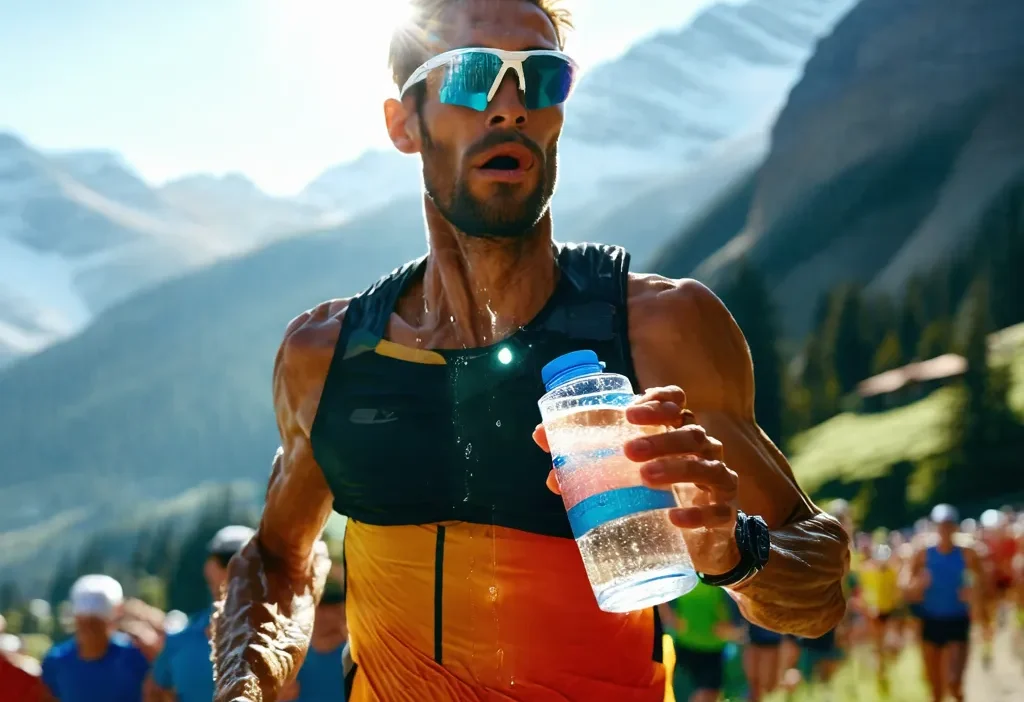Why Proper Hydration is Key to Your Best Athletic Performance
If you’re serious about your sports performance, you know that hydration isn’t just a minor detail—it’s the cornerstone of your success. Staying properly hydrated can mean the difference between a personal best and an underwhelming performance. But how exactly does hydration impact your sports performance? Let’s dive into the science behind it and discover practical tips to keep you at the top of your game.
The Science Behind Hydration
Your body is made up of approximately 60% water, which plays a vital role in nearly every bodily function. When you’re dehydrated, even slightly, it can lead to a cascade of issues that negatively affect your performance.
- Regulates Body Temperature: Water helps dissipate heat through sweating, preventing dangerous spikes in body temperature during intense activity.
- Nutrient Delivery: It’s essential for transporting oxygen and nutrients to your muscles, ensuring they have the fuel they need to perform at their best.
- Joint Lubrication: Adequate hydration keeps your joints lubricated, reducing the risk of injury during high-impact sports.
Research shows that even a 2% loss of body weight due to dehydration can lead to significant decreases in performance. That’s why athletes across all disciplines—whether it’s marathon running, football, or yoga—are so focused on staying hydrated.
The Impact of Hydration on Sports Performance
Hydration doesn’t just keep you from cramping; it’s a direct influencer of how well you perform. Here’s how:
- Improved Endurance: Proper hydration helps maintain your stamina, allowing you to push harder and longer without feeling exhausted.
- Better Concentration: Staying hydrated keeps your cognitive functions sharp, which is crucial for sports requiring strategy and quick decision-making.
- Enhanced Recovery: Water aids in flushing out toxins produced during intense workouts, speeding up recovery time.
A study published in the Journal of Sports Sciences found that athletes who maintained proper hydration levels experienced a 10-20% improvement in performance compared to those who were even slightly dehydrated. That’s a significant difference!
How Much Water Should You Drink?
The age-old question: how much water should you consume? The answer isn’t one-size-fits-all, as it depends on factors like your weight, activity level, and environment. However, here are some general guidelines:
- Before Exercise: Drink 17-20 ounces of water 2-3 hours before your workout to ensure you’re starting hydrated.
- During Exercise: Sip on water regularly, aiming for about 8-10 ounces every 15-20 minutes during intense activity. For endurance sports lasting longer than an hour, consider adding electrolytes to replace what’s lost through sweat.
- After Exercise: Rehydrate with 20-32 ounces of water for every pound of body weight lost during your workout. Weighing yourself before and after can help determine how much you need to replenish.
But don’t rely solely on thirst as your guide—by the time you feel thirsty, you’re already dehydrated. Instead, monitor the color of your urine; a pale yellow indicates proper hydration, while darker colors mean you need to drink more.
Stay Ahead of Dehydration
Preventing dehydration isn’t just about drinking water when you’re thirsty—it’s about being proactive. Here are some tips:
- Plan Your Hydration: Keep a reusable water bottle with you at all times, and set reminders to drink regularly if needed.
- Eat Water-Rich Foods: Fruits like watermelon, oranges, and cucumbers can help boost your hydration levels naturally.
- Avoid Dehydrating Diets: Caffeine and alcohol are diuretics that can contribute to dehydration. Limit their intake, especially on days when you’re active.
Incorporating these strategies into your daily routine will help you stay consistently hydrated, giving you the edge in your sports performance.
When to Consider Sports Drinks
While water is generally sufficient for most activities, there are times when a sports drink might be beneficial. If you’re engaging in prolonged, high-intensity exercise—especially in hot weather—a sports drink can help replenish lost electrolytes like sodium and potassium without spiking your blood sugar. Look for options with minimal added sugars to keep it healthy.
The Bottom Line
Hydration is the unsung hero of sports performance, yet its impact is undeniable. By understanding how water affects your body and taking proactive steps to stay hydrated, you can unlock your full athletic potential. So next time you head out for a workout or competition, make sure you’re not just fueling up with food—you’re also giving your body the hydration it needs to shine.
Remember, every drop counts when it comes to performance. Stay hydrated, stay strong!





